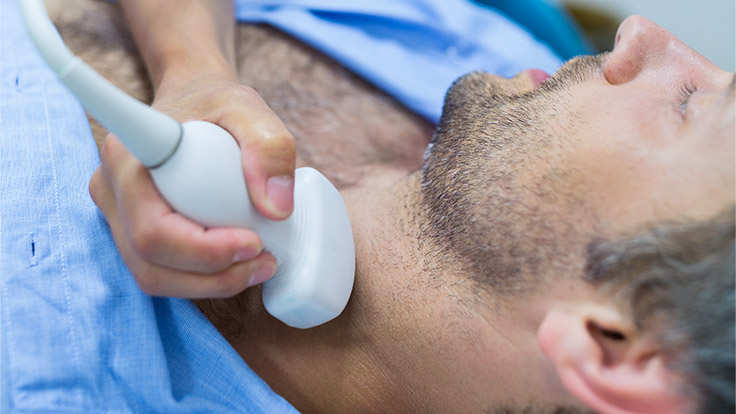Published on:29-11-2023
Thyroid disease is common in the United States. As per the American Thyroid Association, around 20 million people are likely to have this disease. But do not worry. If you know the symptoms and causes, treatment at the right time will not be difficult.
So, keep reading!
Understanding Thyroid Disease
Just like other glands in your body, the thyroid is also a gland that produces a hormone called thyroid. It plays a key role in several essential body functions. Improper working of the gland leaves an impact on the body, leading to thyroid disease.
Location and Shape
This butterfly-shaped gland is encircled around the windpipe and present in front of the neck. It also has two side wings, each extending to one side of the throat.
Function
The thyroid hormone controls your body’s mechanism (converting food into energy). T3 (thyroxine) and T4 (triiodothyronine) collectively make up the thyroid hormone. These hormones signal the body how much energy to use for each function.
What is Hyperthyroidism?
It is a condition in which your body makes thyroid hormone in excess. Due to this, the body uses energy quickly, making you feel tired. People with hyperthyroidism start losing weight and experience a faster heartbeat.
What is Hypothyroidism?
This condition is opposite to hyperthyroidism, as it occurs when the thyroid releases less hormone than required. It results in weight gain, tiredness, and other symptoms.
Causes, Symptoms, and Diagnosis of Thyroid Disease
Thyroid disease is caused by other diseases that affect the working of the thyroid gland. These include thyroiditis, iodine sufficiency or deficiency, grave’s disease, nodules, etc.
Symptoms of Hyperthyroidism
- Goiter
- Sleeping
difficulty
- Weight
loss
- Anxiety
- Eye
irritation
- Muscle
weakness
- Irregular
menstrual cycle
- Sensitivity to heat
Symptoms of Hypothyroidism
- Weight
gain
- Heavy
menstrual periods
- Hoarse
voice
- Dry
hair
- Tiredness
- Sensitivity to cold temperature

Diagnosis
Both hypothyroidism and hyperthyroidism have symptoms similar to other diseases. Physical examination and a few diagnostic tests are performed to confirm the cause of the symptoms.
These tests include:
- Imaging
tests
- Blood tests
Management and Treatment of Thyroid Disease
The treatment plan depends on multiple factors, including age, cause, and other medical conditions. However, the goal of treating the disease is to bring the hormone level back to normal.
Treatment of Overactive Thyroid
- Beta-blockers
- Antithyroid
drugs
- Radioactive
iodine
- Surgery
Treatment of Underactive Thyroid
- Medications for thyroid replacement
What is Thyroid Surgery?
Thyroidectomy is the surgery for thyroid removal. If you have suspicious thyroid nodules that can convert into cancer, surgery is recommended. Likewise, it is also a treatment option in non-cancerous thyroid. If the goiter (lump) is causing swallowing difficulty and is becoming overactive, surgery can be the solution.
How is it Done?
Two options are present for the surgery. Incision through the neck or the armpit. Once the surgery is done, it takes a few weeks to recover.
If you are experiencing the above symptoms, do not delay. Book an appointment at SpringField Medical Clinic. Thyroid consultation and treatment is one of our areas of expertise. Get in touch!

